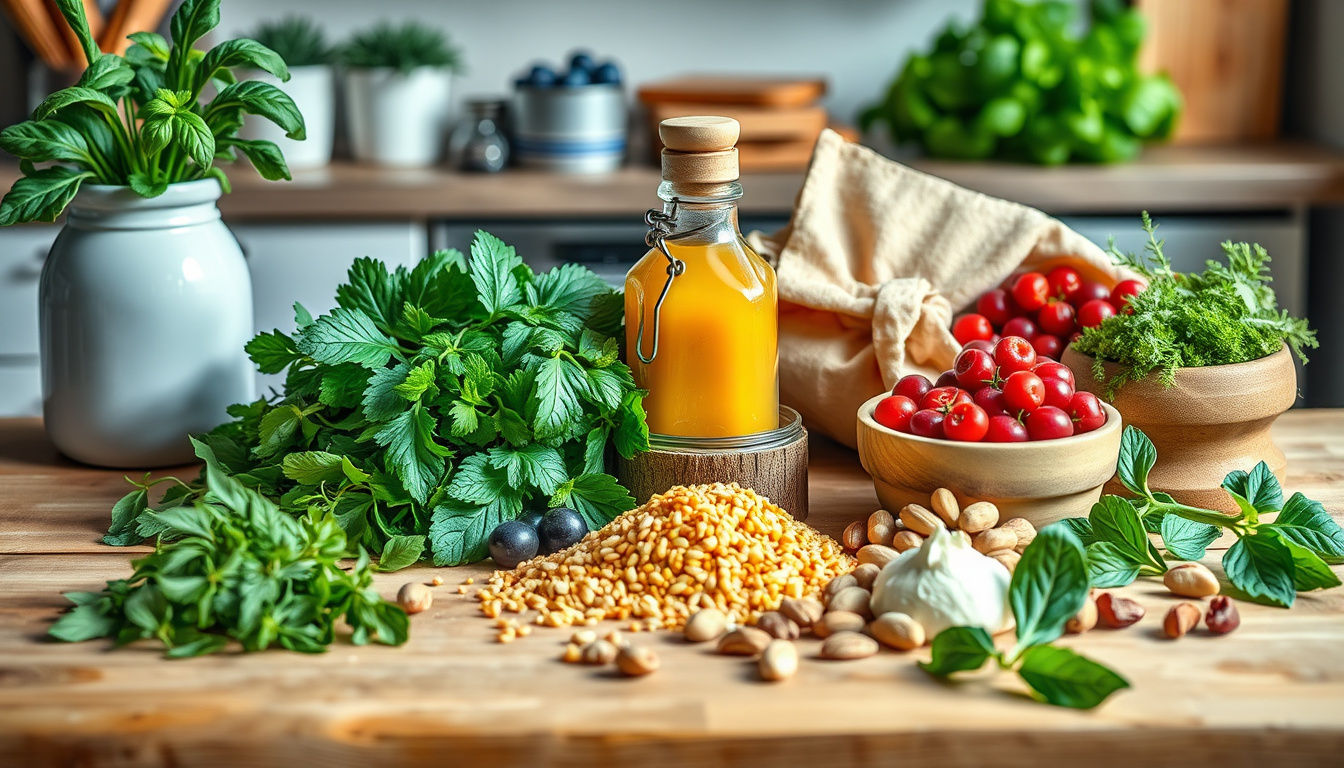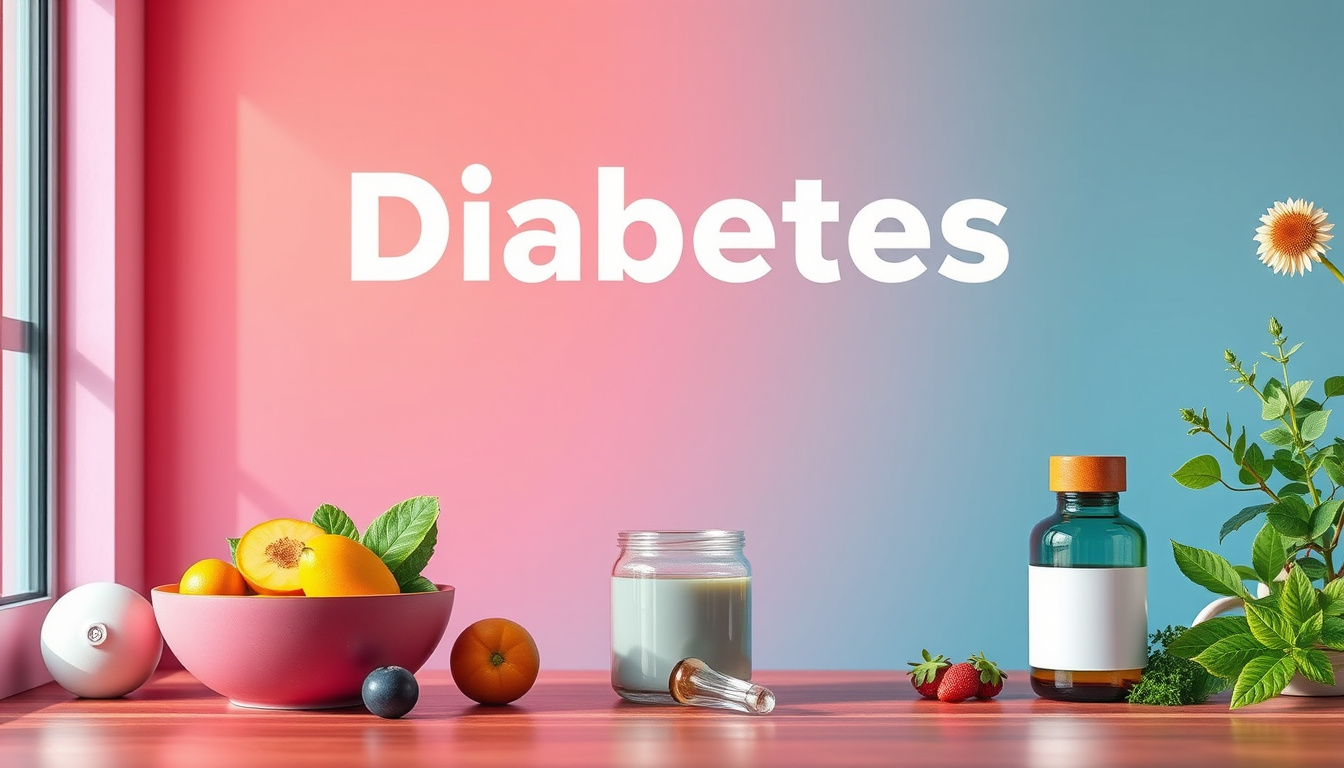Natural Solutions: Effective Home Remedies for Managing Diabetes at Home
 Jill Smith
Jill Smith
Managing diabetes, particularly type 2 diabetes, is a multifaceted approach that includes conventional medicine, dietary choices, physical activity, and natural remedies. While traditional treatments are crucial, many individuals seek complementary methods to enhance their blood sugar control. This article explores several effective home remedies that can be incorporated into your diabetes management plan, but it's essential to consult with a healthcare professional before beginning new treatments.

1. Apple Cider Vinegar
Apple cider vinegar (ACV) has garnered attention for its potential to lower blood sugar levels. Consuming 1-2 tablespoons before meals or before bedtime can improve insulin sensitivity and reduce morning fasting glucose. Mixing ACV into salads or teas is an easy way to incorporate it into your diet.
2. Increased Fiber Intake
Fiber plays a vital role in blood sugar management. Foods rich in fiber help slow the digestion of carbohydrates, leading to more stable blood sugar levels. Aim for at least 30 grams of fiber daily by incorporating whole grains, beans, fruits, and vegetables into your meals.
3. Cinnamon
A popular spice, cinnamon has been shown in studies to improve insulin sensitivity and lower blood sugar levels. Including cinnamon in your diet (for instance, in oatmeal or smoothies) is a simple way to add flavor and potential health benefits.
4. Chromium and Magnesium
These minerals can enhance insulin sensitivity. Chromium is found in whole grains and can aid in blood sugar management by improving glucose metabolism. Magnesium, present in nuts, leafy greens, and whole grains, supports the body’s ability to use insulin effectively and may reduce the risk of diabetes complications.
5. Fenugreek Seeds
Used in cooking and traditional medicine, fenugreek seeds may help lower blood sugar levels and improve glucose tolerance. You can consume them by soaking the seeds in water overnight and eating them on an empty stomach or adding them to meals.
6. Aloe Vera
Aloe vera juice can help lower blood sugar levels, especially in people with type 2 diabetes. Be sure to choose a product that's safe for consumption; the gel should be free from harmful compounds that can cause gastrointestinal distress.
7. Berberine
Found in various plants, berberine has shown promise in lowering blood sugar and improving insulin sensitivity. This herbal supplement should be taken under medical supervision due to potential interactions with medications.
8. Stress Management
High stress can lead to increased blood sugar levels. Incorporating activities like yoga, meditation, or deep-breathing exercises into your daily routine can help alleviate stress and its physiological effects, thereby supporting better blood sugar control.
9. Regular Physical Activity
Exercise plays a crucial role in managing diabetes. Engaging in regular physical activity, whether walking, cycling, or dancing, enhances insulin sensitivity and helps regulate blood sugar. Aim for at least 150 minutes of moderate exercise weekly, and consider shorter, more frequent exercise sessions if you're short on time.
10. Stay Hydrated
Drinking adequate water helps regulate blood sugar levels. Hydration supports kidney function, enabling your body to flush out excess sugar through urine. Aim for consistent water intake throughout the day and limit sugary beverages that can spike blood sugar.
11. Choose Low Glycemic Index (GI) Foods
Foods with a low GI impact blood sugar less dramatically. Incorporating low GI options like barley, legumes, and most non-starchy vegetables into your meals can help maintain stable blood sugar levels. Pairing these foods with proteins and healthy fats can further minimize blood sugar spikes.
Conclusion
Home remedies for managing diabetes serve as complementary strategies to conventional treatments. They can help regulate blood sugar levels, improve overall health, and enhance the effectiveness of traditional medications. Remember to approach these remedies with caution and discuss them with your healthcare provider to ensure a safe and effective addition to your diabetes management plan. Adopting a comprehensive approach that includes healthy lifestyle changes, balanced nutrition, and appropriate exercise is key to achieving better diabetes control and overall well-being.
Turn Back the Clock: Unlock the Secrets to Reverse Diabetes in 30 Days. Don't Wait! Download Now
Subscribe to my newsletter
Read articles from Jill Smith directly inside your inbox. Subscribe to the newsletter, and don't miss out.
Written by
